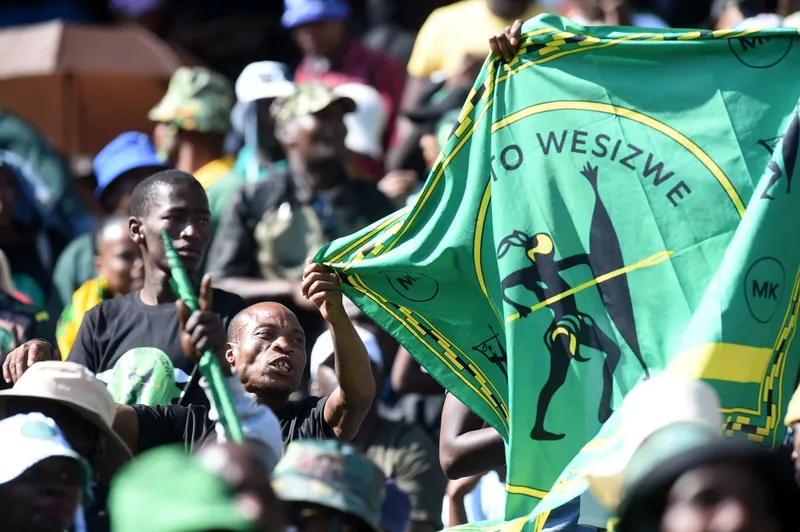ANC's failures fuelling DA's anti-transformation agenda
The persistent bickering between the ANC and DA is to be expected. The GNU is, after all, a marriage of inconvenience. The GNU has all the hallmarks of a marriage ...
Ratubatsi Super Moloi: Hamba Kahle to a Patriot, Freedom Fighter and Seasoned Diplomat
Ambassador Moloi’s life was characterised by his unwavering dedication to the liberation and advancement of South Africa. From his early activism in Soweto to his ...
China’s Response to US Tariffs: Lessons for Africa
As Africa moves toward greater industrialisation and regional integration, China’s model offers important lessons, says the writer.
Pope Leo XIV: We want to be a Church that always seeks peace
We must seek together how to be a missionary Church, a Church that builds bridges, a dialogue, always open to receive, like this square with open arms, everyone ...
Justice deferred: The ongoing struggle for accountability and closure
At this late hour, another commission is not enough. South Africans deserve the integrity that the promises made in our name be honoured. The prosecution of apartheid-era ...
Cracks in BRICS Wall of Solidarity Threatens Global South Progress
If BRICS cannot unite, Trump will be victorious, and the West will continue its reign of domination. The expanded BRICS bloc could collapse on the crack of disunity, ...
Palestine, Israel and the 'Two States': Colonial State and State of siege
Impervious to questioning by global public opinion and the timid response of some States and supranational bodies, the Freedom Flotilla Coalition (FFC) set out to ...
The treaty that kept India and Pakistan in check is gone. Now what?
Days before India’s ‘Operation Sindoor,’ Islamabad suspended the 1972 agreement with New Delhi that aimed to establish lasting peace between the two neighbours, ...
Press Freedom: Ensuring Dissenting Voices are Heard is Critical for Democracy
Freedom of the press, after all, is not just a right for journalists, but for the whole of society, and precisely for this reason it must ensure that dissenting ...
The Role of Human Rights in Combating Corruption in Africa
To effectively combat corruption and promote human rights across Africa, a collective and concerted effort from all stakeholders is essential, says the writer.
Western Cape Taxi Conflict: A Tale of Violence, Crime and Corruption
The Western Cape taxi violence are manifestations of a deeper crisis left to fester, evidence of an underworld where violence is a means of control, and accountability ...
A Pivotal Moment for the Global South to Recalibrate
Bandung’s anniversary is more than a commemoration; it is a clarion call for unity, dignity, and justice from the Global South in a world plagued by coercion, division, ...
Electing a Black Pope a bridge too far for the Vatican?
With allegations of deep-seated racism having been levelled against the Vatican in the past, it is unlikely that an African candidate will be able to amass the two-thirds ...
Draining the fiscus to rescue a tarnished legacy
Has this strategy of convening izimbizo not been overtaken by events? In other words, is this not too little too late? If this is the case, is the convening of these ...
VAT Debacle Exposes the ANC's Policy Contradictions
The reversal of the VAT decision was more than just a tactical withdrawal; it exposed the challenges the ANC encounters due to the dual burden of being a liberation ...
G20 Summit: A Mountain to Climb for Africa
The unfortunate truth is that both public and private resources have not been enough to finance the development needs of Africa and other Global South countries, ...
DRC Conflict: Jury Out on Washington Accord and the Quest for Lasting Peace
While for the people of the DRC, peace talks are the pathway to unity, recovery and reconstruction, the US is likely to be more driven by access to vital resources, ...
Rising from the Ashes: 50 years of Vietnam’s victory over the US
Despite the challenges of overcoming the deep scars of war, 50 years later Vietnam stands tall. The most important question is how a country devastated by foreign ...
Catholic Church: Praying for an African Pope
The election of an African Pope would show the Catholic Church’s faith not only in an African leader but in the Continent as a whole. For Africa, it could help resurrect ...
